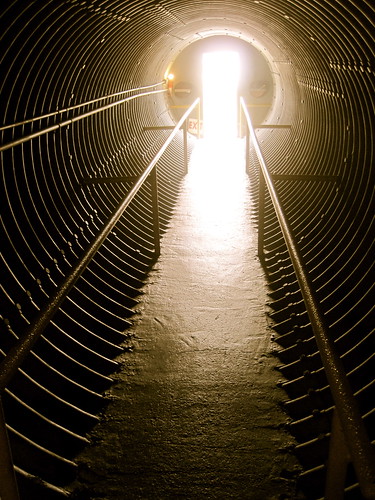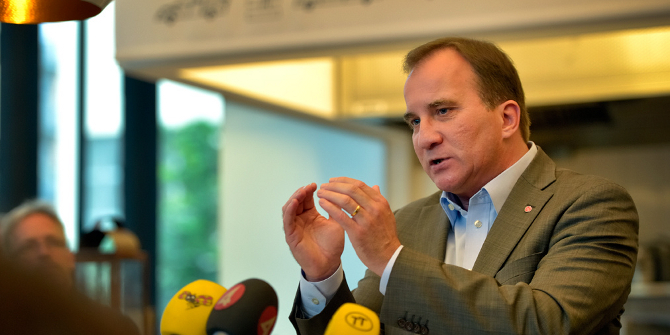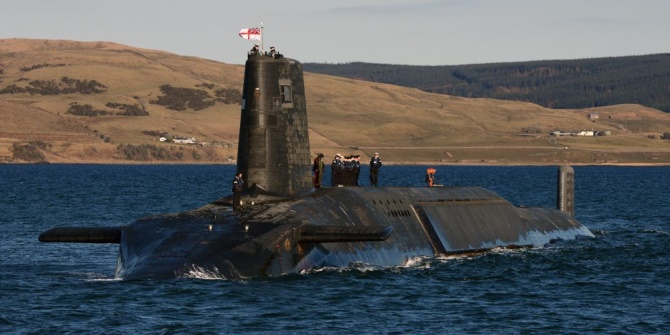 The Cuban missile crisis began fifty years ago this week. For thirteen days the world stood on the precipice of nuclear war. In this post Professor Wyn Grant reflects on the experience of living through the crisis and confronting the existential threat it represented while only a teenager.
The Cuban missile crisis began fifty years ago this week. For thirteen days the world stood on the precipice of nuclear war. In this post Professor Wyn Grant reflects on the experience of living through the crisis and confronting the existential threat it represented while only a teenager.
At present we are commemorating 50 years since the Cuban missile crisis. To mark the event, two decommissioned missile sites have been given listed building status.

At the time of the crisis I was fifteen years old and very interested in politics and international relations. The worst phase of the crisis more or less coincided with my October half-term holiday from school and fear about the possible outcome certainly spoilt the break.
Of course, I had grown up in the nuclear age, the bombs at Hiroshima and Nagasaki having been detonated less than two years before I was born. My first political memory is of hearing about the Korean War on the radio (on holiday in Cornwall) and the possibility that it might turn into a third world war if nuclear weapons were deployed, as some in the United States were recommending.
There were crises between then and the Cuba crisis. The Suez crisis seemed more like an exercise in national foolishness, given that the Americans were not prepared to back Britain. Perhaps most concerning were a series of crises in the divided city of Berlin which brought the super powers face to face.
The Cuba crisis was, however, clearly the most serious of the Cold War era. Indeed, we now know that the situation was potentially more serious than it appeared because the Soviet Union had what in effect were tactical nuclear weapons deployed in Cuba which could have been used on the decision of local commanders in the event of an American invasion.
Life went on as usual during the height of the crisis. The sense was that Britain had little influence on the course of events and this was confirmed by my subsequent reading of Macmillan’s memoirs with Kennedy listening politely to Macmillan but putting his ideas ‘over to State’. Macmillan very sensibly decided not to move any ministers or civil servants to the command bunker near Bath about which Peter Hennessy has written as it would be seen as a sign of preparation for war.
The only changes I noticed were planes flying overhead at night and a very short ten second test of the wailing attack siren. No one started to take any panicky precautions, although that might have changed if the crisis had continued. I was certainly aware of the devastating effects of nuclear weapons and of radiation. I also knew that there was a USAF base not too far away which would be a target, as well as a site for essentially unprotected, liquid fuelled missiles which would have taken some time to prepare and fire. There was also a command and control bunker nearby; now open to the public.
There was a very real chance that my life would have ended at the age of fifteen. Jack Kennedy’s presidency has been subject to justifiable criticism, but his finest hour was managing the crisis and standing firm against demands for more bellicose action. He also realised he would have to give the Soviet Union something in return for backing down: a promise not to invade Cuba and a subsequent quiet removal of the Jupiter missiles from Turkey. There were subsequent confrontations in the Middle East, but nothing as threatening as the Cuba crisis.
Ironically, my own later part-time military service involved sitting in a bunker as part of the UK’s warning and monitoring capability. NATO exercises certainly give you an understanding of what real boredom is. I was just grateful to still be alive.
Note: This article gives the views of the author, and not the position of the British Politics and Policy blog, nor of the London School of Economics. Please read our comments policy before posting.
Wyn Grant is Professor of Politics and International Studies at the University of Warwick. He joined the department in 1971 and was chair of department from 1990 to 1997. In 2010 he was presented with the Diamond Jubilee Lifetime Achievement award of the Political Studies Association of the UK at their Awards Ceremony. He was elected an Academician of the Academy of Social Sciences in 2011.







